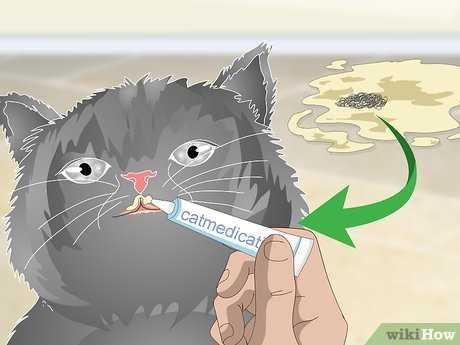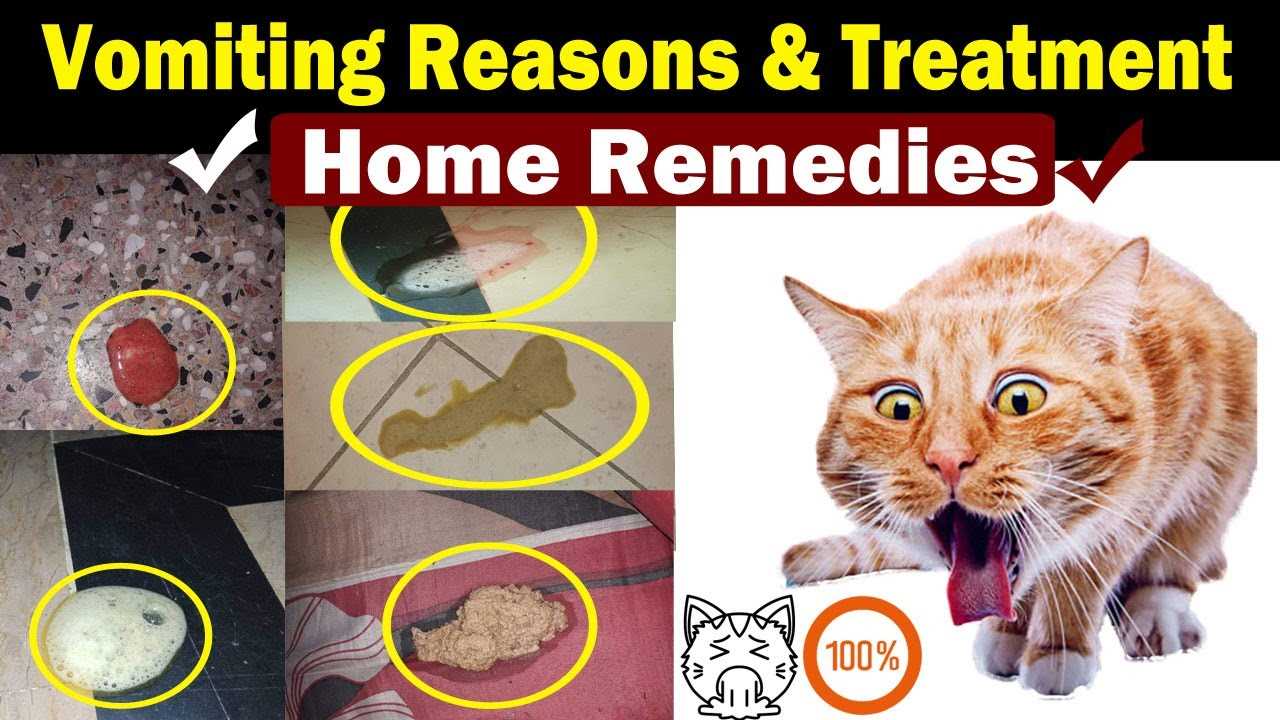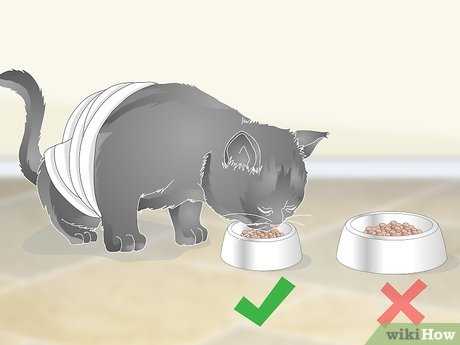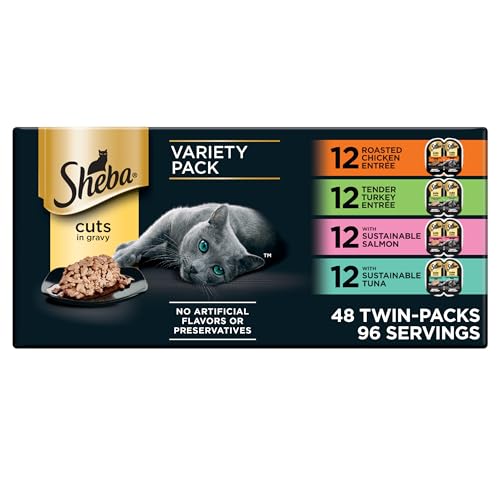



If you notice your furry companion has been feeling unwell, the first step is to ensure they stay hydrated. Fresh water should always be accessible. If your buddy refuses to drink, consider offering ice chips or a small amount of low-sodium chicken broth. This can help keep them hydrated without overwhelming their system.
Monitor their eating habits closely. Sometimes, a bland diet can do wonders. Try offering a mix of boiled chicken (no skin or seasoning) and plain white rice. This gentle meal can soothe their stomach while providing essential nutrients. Gradually reintroduce their regular food once they show signs of improvement.
Keep an eye on their litter box. Changes in bowel movements can indicate underlying issues. If the situation doesn’t improve within a day or two, or if you notice blood in their vomit, it’s crucial to consult a veterinarian. Early intervention can make a significant difference in recovery.
Lastly, ensure your playful friend is comfortable. A quiet, warm space can help reduce stress, allowing them to rest and recover. Your attention and care are key components in getting them back to their usual playful self.
Recommendations for My Feline Friend with Upset Stomach
First, I suggest offering small amounts of plain, boiled chicken or turkey. Ensure it’s shredded and free of any seasoning. This protein source is gentle on the stomach.
Next, consider introducing plain pumpkin puree. A teaspoon can aid digestion and firm up stools. Make sure to use unsweetened and unspiced varieties.
Hydration is crucial. Provide fresh water at all times. If she’s reluctant to drink, adding a bit of low-sodium chicken broth can entice her to stay hydrated.
Probiotics designed for felines can help restore gut health. Look for options specifically formulated for pets and follow the dosage guidelines.
Lastly, consult a veterinarian if symptoms persist. Chronic issues warrant professional evaluation to rule out underlying conditions.
Understanding the Causes of Vomiting in Cats
Identifying the source of regurgitation is critical. Common reasons include dietary issues, hairballs, and medical conditions. A sudden change in food or eating too quickly can lead to an upset stomach. Selecting smaller, easily digestible meals may help alleviate this problem.
Dietary Factors

Some felines have sensitivities or allergies to certain ingredients. Grain-free or limited-ingredient diets might be worth exploring. Additionally, overindulgence can trigger discomfort. Feeding smaller portions throughout the day can prevent excessive intake.
Health Concerns

Underlying health issues such as infections, parasites, or gastrointestinal disorders require attention. Regular veterinary check-ups can help detect these problems early. If the issue persists, seeking professional advice is essential to ensure proper treatment.
Immediate Steps to Take When Your Feline Friend Gets Sick
First, remove any food for at least 12 hours. This helps the stomach settle. Provide fresh water in small amounts to keep hydration levels up. Observe for additional symptoms like lethargy or diarrhea; these may indicate a more serious issue.
If your buddy has a persistent issue, consider switching to a bland diet after the fasting period. Options include boiled chicken or rice, which can soothe the stomach. Transition back to regular meals gradually to avoid further distress.
Keep a close eye on behavior. If there’s no improvement after 24 hours, or if the situation worsens, contact a veterinarian. Early intervention can be crucial in addressing health concerns.
Lastly, ensure a calm environment. Stress can exacerbate health issues, so create a safe space for relaxation. This might mean reducing loud noises or providing a cozy spot for rest.
Safe Foods to Offer a Vomiting Cat
If your furry friend is unwell, try offering boiled chicken or turkey without any seasoning. These lean proteins are easy to digest and can help settle their stomach.
Other Suitable Options
Plain white rice or pumpkin puree can also be beneficial. Rice serves as a good carbohydrate source, while pumpkin provides fiber that may help regulate digestion.
Foods to Avoid
Avoid dairy products, spicy foods, or any rich meals, as these can exacerbate the issue. Always consult with your veterinarian if symptoms persist.
| Food | Benefits |
|---|---|
| Boiled Chicken/Turkey | Easy to digest, lean protein |
| White Rice | Soothing carbohydrate |
| Pumpkin Puree | High in fiber, supports digestion |
For additional support, consider trying the best colostrum for cats. It may aid in recovery and improve overall health.
Hydration Solutions for Felines Experiencing Upset Stomach
When dealing with hydration for a pet experiencing nausea, focus on providing fluids that are easily digestible. Consider the following options:
- Electrolyte Solutions: Specially formulated pet electrolytes can be effective. Look for products designed for our kind, as human versions may contain harmful ingredients.
- Bone Broth: Homemade or store-bought bone broth is nutritious and can encourage drinking. Ensure there are no added onions or garlic.
- Water with Flavor: Adding a small amount of tuna juice or low-sodium chicken broth to fresh water can entice hydration.
Tips for Encouraging Fluid Intake
- Use a Pet Fountain: Running water can attract attention and encourage sipping.
- Offer Ice Cubes: Some enjoy licking ice cubes, which can also provide hydration.
- Frequent Small Amounts: Instead of large bowls, offer smaller portions throughout the day to prevent overwhelming the stomach.
Always monitor for signs of dehydration, such as dry gums or lethargy. If these symptoms persist, a visit to the vet may be necessary for further evaluation. Staying hydrated is key to feeling better!
Medications and Supplements for Vomiting Cats

When feeling unwell, certain medications can provide relief. Consult your vet for options like ondansetron, which helps control nausea. Another effective choice is metoclopramide, known to enhance gastric motility.
For ongoing issues, probiotics might assist in restoring gut health. Products specifically formulated for felines are ideal, promoting a balanced digestive system. Enzymatic supplements can also support digestion and nutrient absorption.
Always ensure any treatment aligns with professional advice. Never self-prescribe without consulting a veterinarian. Monitoring your furry friend’s condition is crucial. If symptoms persist, a follow-up visit may be necessary to adjust treatment.
Incorporating hydration solutions, such as electrolyte solutions, can also aid recovery. Staying hydrated is key, especially if your buddy has lost fluids. For more tips on maintaining cleanliness during this time, check out the best face washing machine.
When to Consult a Veterinarian for Vomiting Issues
If my tummy troubles persist for more than 24 hours, a trip to the vet is necessary. Immediate veterinary care is essential if I experience any of the following:
- Repeated episodes of regurgitation.
- Presence of blood in the expelled material.
- Severe lethargy or unusual behavior.
- Signs of dehydration, such as dry gums or excessive thirst.
- Abdominal pain or swelling.
- Loss of appetite lasting longer than 24 hours.
It’s crucial to gather details before visiting the clinic. Noting the frequency of my symptoms, any changes in my diet, and other health indicators will help the vet make an informed diagnosis. If I have recently consumed anything unusual, that information should be shared too.
In cases of sudden weight loss, persistent diarrhea accompanying my issues, or if I seem distressed, those are red flags warranting immediate attention. Early intervention often leads to better outcomes, so don’t hesitate to seek professional advice.
Preventive Measures to Avoid Future Vomiting Episodes
Regular feeding schedules help maintain digestive health. Offer smaller, more frequent meals instead of large portions. This reduces the risk of overloading the stomach.
Monitor food choices closely. High-quality, easily digestible options such as specific brands formulated for sensitive stomachs can minimize gastrointestinal distress. Always check for any allergens in ingredients.
Maintain hydration by ensuring fresh water is always available. Consider offering wet food, as it provides moisture and supports overall health.
Encourage slow eating with puzzle feeders or specially designed bowls. This tactic prevents gulping, which can lead to nausea.
Grooming sessions help in reducing hairballs by keeping fur in check. Regular brushing minimizes the amount of fur ingested during self-grooming.
Limit access to hazardous materials within the home. Certain plants, chemicals, and human foods can trigger adverse reactions. Educate yourself on toxic substances.
Regular veterinary check-ups are essential for monitoring health and catching potential issues early. Vaccinations and preventive treatments help prevent illnesses that may lead to digestive upset.
Provide a stress-free environment. Changes in routine, loud noises, or new animals can impact well-being. Create a safe space for relaxation.
Physical activity is vital for maintaining a healthy weight and preventing obesity-related issues. Engage in playtime to promote fitness and mental stimulation.
Observe behavior and appetite changes closely. Early detection of unusual symptoms can lead to timely intervention before issues escalate.
FAQ:
What should I do if my cat is vomiting frequently?
If your cat is vomiting frequently, it’s important to monitor their overall health and behavior. Start by observing if there are any changes in their appetite, energy levels, or litter box habits. Ensure they are hydrated, as vomiting can lead to dehydration. Providing small amounts of water or ice cubes can help. You might consider withholding food for 12-24 hours to give their stomach a rest. After this period, introduce a bland diet, such as boiled chicken or rice, in small portions. If the vomiting persists, it is crucial to consult a veterinarian to rule out any underlying health issues.
Can I give my cat any home remedies for vomiting?
While some home remedies may help with occasional vomiting, it’s essential to approach them with caution. Ginger is known for its anti-nausea properties, but it should be given in very small amounts. Always consult your veterinarian before trying any home remedies, as some substances can be harmful to cats. Additionally, ensure that your cat is not experiencing any serious health issues that require professional treatment. If your cat’s vomiting continues or worsens, seeking veterinary advice is the best course of action.
What foods are safe to give my cat after they’ve vomited?
After your cat has vomited, it’s advisable to start with a bland diet to ease their stomach. Boiled chicken without skin or bones is a safe option, as is plain white rice. You can also consider feeding them specially formulated veterinary diets for sensitive stomachs. Introduce these foods gradually, starting with small portions to see how your cat reacts. If they tolerate the bland diet well, you can slowly reintroduce their regular food over several days. However, if vomiting recurs or if there are other concerning symptoms, consult your veterinarian for further guidance.











